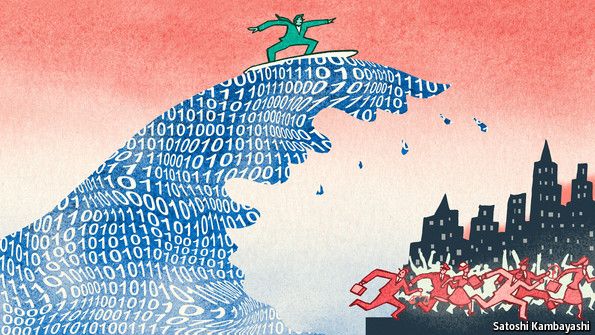The Economist
IN 1930, when the world was “suffering…from a bad attack of economic pessimism”, John Maynard Keynes wrote a broadly optimistic essay, “Economic Possibilities for our Grandchildren”. It imagined a middle way between revolution and stagnation that would leave the said grandchildren a great deal richer than their grandparents. But the path was not without dangers.
One of the worries Keynes admitted was a “new disease”: “technological unemployment…due to our discovery of means of economising the use of labour outrunning the pace at which we can find new uses for labour.” His readers might not have heard of the problem, he suggested—but they were certain to hear a lot more about it in the years to come.
